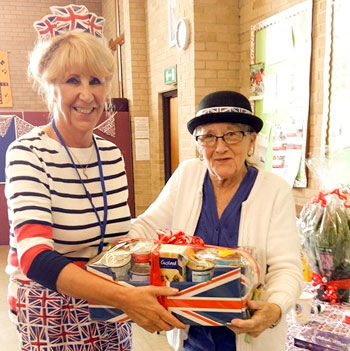Engaging Communities - Involve
Look what we have been involved with:
Role of patient and public involvement in implementation research: a consensus study
Kara Gray-Burrows1, Thomas Willis2, Robbie Foy2, Martin Rathfelder3, Pauline Bland3, Allison Chin3, Susan Hodgson3, Gus Ibegbuna3, Graham Prestwich3, Kirsty Samuel3, Laurence Wood3, Farhat Yaqoob3, Rosemary R C McEachan4
Abstract
Background Patient and public involvement (PPI) is often an essential requirement for research funding. Distinctions can be drawn between clinical research, which generally focuses on patients, and implementation research, which generally focuses on health professional behaviour. There is uncertainty about the role of PPI in this latter field. We explored and defined the roles of PPI in implementation research to inform relevant good practice guidance.
Methods We used a structured consensus process using a convenience sample panel of nine experienced PPI and two researcher members. We drew on available literature to identify 21 PPI research roles. The panel rated their agreement with roles independently online in relation to both implementation and clinical research. Disagreements were discussed at a face-to-face meeting prior to a second online rating of all roles. Median scores were calculated and a final meeting held to review findings and consider recommendations.
Results Ten panellists completed the consensus process. For clinical research, there was strong support and consensus for the role of PPI throughout most of the research process. For implementation research, there were eight roles with consensus and strong support, seven roles with consensus but weaker support and six roles with no consensus. There were more disagreements relating to PPI roles in implementation research compared with clinical research. PPI was rated as contributing less to the design and management of implementation research than for clinical research.
Conclusions The roles of PPI need to be tailored according to the nature of research to ensure authentic and appropriate involvement. We provide a framework to guide the planning, conduct and reporting of PPI in implementation research, and encourage further research to evaluate its use.
Click here to read the full article>>
Here are a few examples of how you can get involved with us:
Rockwell Rocks

Rockwell Rocks is an annual health promotion event organised and funded by Rockwell and Wrose Medical Practice with support from Engaging Communities. Following on from last year's successful event - “Let’s Talk” - Engaging Communities is consulting with Rockwell and Wrose Patient Group on what form this year's event should take. Watch this space!
Idle Wellbeing Café

Well being cafés were orginally set up as part of the Bradford and Airedale “Older People’s Health in Mind” programme.
The Well-being cafés provide social activities as well as facilitate open door access to mental health support for people who may not yet have had contact with other services.
Eight of the Well-being cafés have a dementia focus. the others support people with mental health needs, including depression and anxiety. The Well-being cafés enable people to meet other people with similar needs in a social and relaxed atmosphere and also provide access to a wide reaching support base for carers.

Each Well-being café delivers a programme of entertainment/social activities, and guest speakers. Social, health and benefit advisors are available to listen, provide advice and signpost to other support services
While at our café you can expect the following:
- Tea / Coffee and refreshments
- Entertainment/Social activities (which may include music, dance, craft, exercises) etc.
- Access to information and services which support older people